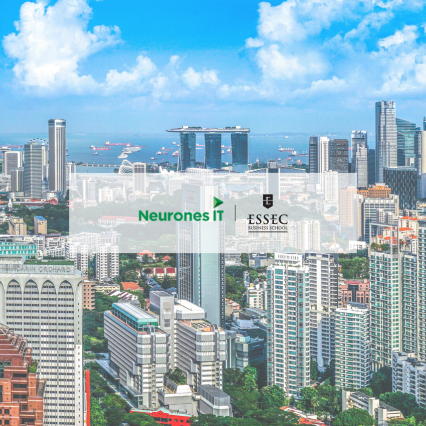Neurones IT Asia Launches Mutualized 24/7 L1 Support Team in India, Serving Club Med, IFS & Havas

- January 12, 2024
Purpose Behind the Mutualized L1 Support Team
The mutualized 24/7 L1 support team (SSC for Shared Service Center) was created in response to growing client demand for cost-effective, round-the-clock operational coverage, without compromising service quality. Traditional dedicated teams often result in underutilized resources and higher costs, especially during low-volume periods.
By pooling support across Club Med, IFS, and Havas, Neurones IT Asia maximizes resource utilization, maintains consistent service levels, and reduces total cost of ownership for clients. This model enables greater flexibility, faster knowledge sharing, and a scalable structure that adapts to incident volumes across time zones. It reflects our strategic focus on delivering efficient, high-impact IT support at a global scale.
Integrating Support for Club Med, IFS & Havas: Scope and Objectives
The mutualized support team provides first-level incident management, alert triage, basic troubleshooting, user request handling, and escalation coordination for Club Med, IFS, and Havas. Services are delivered 24/7, covering IT infrastructure (On-prem, Cloud and Network) business applications monitoring depending on each client’s specific scope.
To handle three distinct clients, the team uses tailored runbooks, client-specific knowledge bases, and priority routing rules (through dedicated escalation matrice). Integration required harmonizing processes while respecting individual SLA frameworks. The main challenge was aligning expectations and workflows across different client environments, which was addressed through collaborative onboarding, shared tooling, and cross-training.
This setup increases operational efficiency by enabling load balancing across the team, reduces idle time, and ensures that skilled agents are always available. Clients benefit from shared best practices, faster onboarding of new agents, and a more agile response model without sacrificing personalized service quality.
Team Structure, Skills, and Operational Approach
The team operates in a true 24/7 shift model, organized across three shifts to ensure uninterrupted coverage. It is composed of L1 analysts with defined roles in ticket triage, incident logging, communication, and escalation.
Agents are trained to handle multiple client environments, with skillsets spanning Windows and Linux basics, Cisco Meraki, ITSM tools (iTop, EasyVista, ServiceNow), monitoring platforms (Centreon, Ekara), and standard IT support protocols.
A centralized ticketing system, tagging logic, and client-specific dashboards (through Grafana) ensure proper routing and SLA adherence. Daily handovers, shared dashboards, and internal quality reviews keep service consistent.
Workload is distributed dynamically based on real-time incident flow, with a manager overseeing prioritization and shift performance. This operational model enables seamless multi-client support while maintaining quality and accountability.
Client Impact
Since launch, the mutualized support team has significantly improved incident response times and reduced escalation delays across all three clients. Average L1 resolution rates have increased, and ticket backlogs during non-business hours have been drastically reduced.
Feedback from our customers has been positive, with clients appreciating the consistent service quality, transparency, and responsiveness, even during weekends and holidays. KPIs show improved mean time to acknowledge (MTTA) and first-time resolution rates.
This support model has proven its ability to deliver enterprise-grade reliability while optimizing costs, positioning Neurones IT Asia as a strong partner for organizations seeking smart, scalable IT operations support.
Next Steps
We plan to expand the mutualized support model to additional clients and potentially higher service tiers (L2 support), particularly where standardized run activities are involved. Ongoing training programs, bi-weekly knowledge-sharing sessions, and continuous improvement workshops will sustain high service quality and adaptability.
We are also exploring automation tools to assist with triage, classification, and reporting. As the mutualized model matures, it will become a cornerstone of our offshore service strategy, offering clients flexibility, resilience, and efficiency in IT support delivery.
Share this page
Related Articles
- All Posts
- Back
- Company Updates
- Events
- Partnership

The expansion of Neurones IT India’s Bangalore office reflects our continued progress in building scalable delivery capabilities across Asia. What...

Neurones IT Asia is proud to announce the official opening of our new office in Hong Kong, marking a key...

Neurones IT Asia was engaged by ESSEC Business School to lead a targeted refresh of its wireless infrastructure at the...